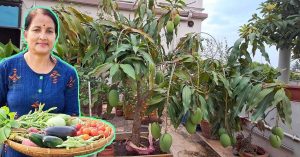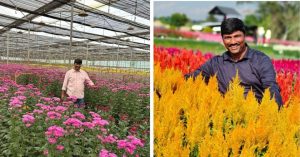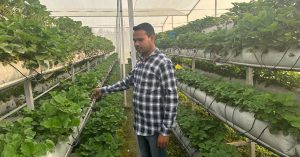7 Amazing Innovations By Farmers Transforming Indian Agriculture
These visionary farmers are transforming Indian agriculture with their groundbreaking innovations — from Ganapathi Bhat’s ‘tree scooter’ for areca palm harvesting to Haresh Thacker’s ‘dragon fruit farming’ in Kutch’s arid landscape.
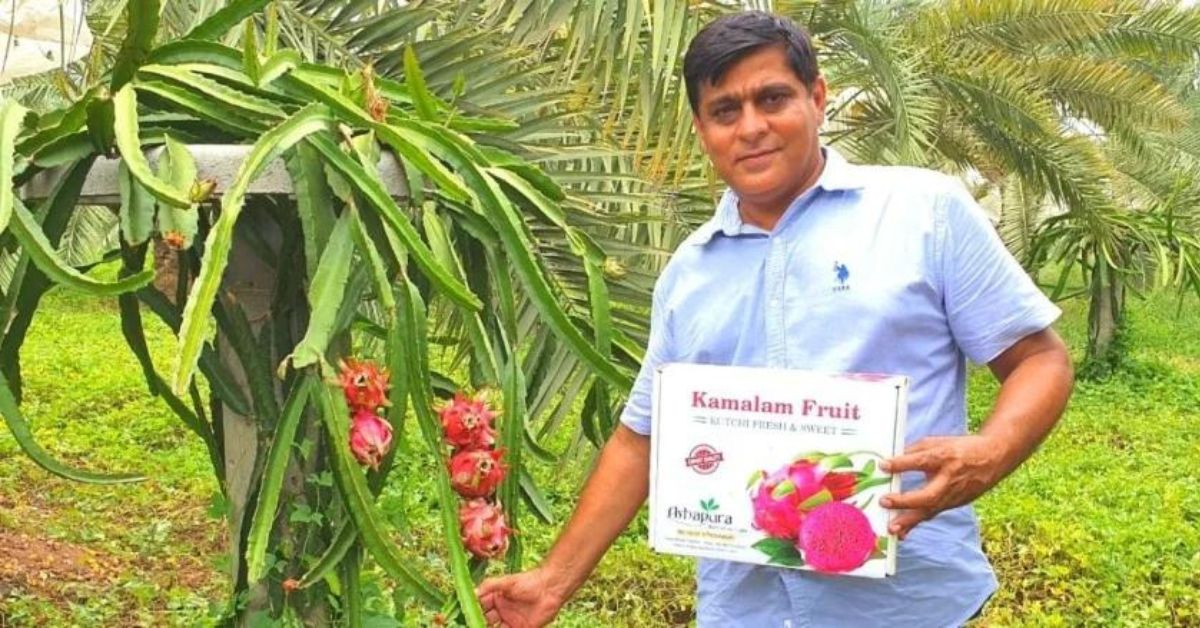
Growing up on a farm exposes kids to the different challenges of agriculture. While some might shy away from these issues, others see them as problems to solve. The latter grow up to become innovators, addressing problems by finding new solutions that enhance efficiency and sustainability in agriculture — from focusing on improving crop yield and conserving water to embracing organic farming.
Here is a list of seven such farmers whose innovative solutions are changing the face of agriculture in the country.
1. Tree scooter revolution
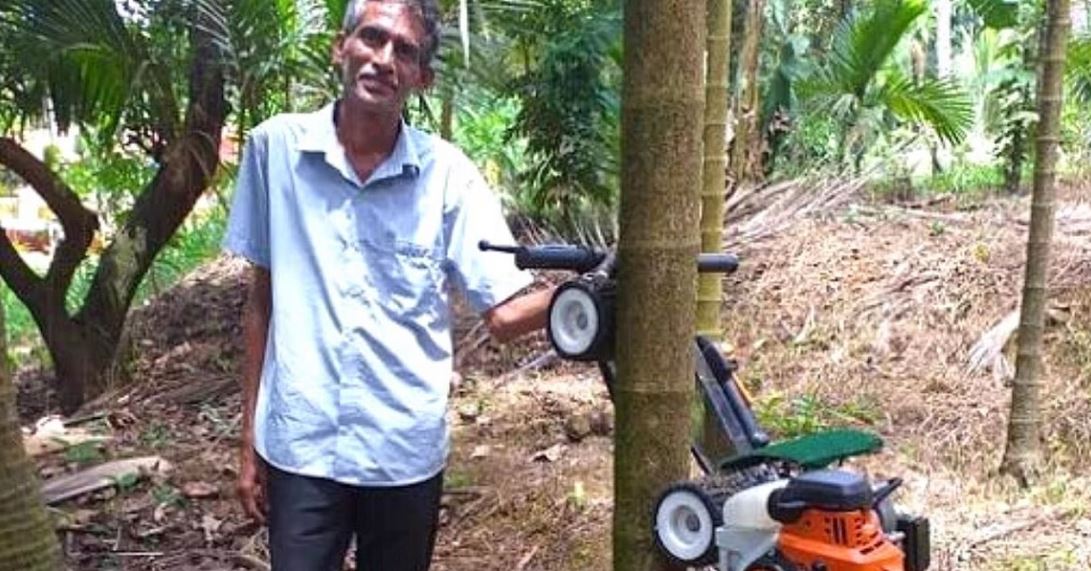
Ganapathi Bhat, a farmer from Mangaluru has innovated an easy-to-use ’tree scooter’ to harvest areca palms. This has helped farmers reduce dependence on labourers and harvest 300 areca palms in a day, which is thrice the amount harvested using traditional methods.
Bhat was facing problems with areca nut harvests due to an unreliable labour workforce and improper maintenance of areca nut trees. This also led to a loss of income. To solve this issue, he came up with the tree scooter, which helps farmers climb up an areca nut tree in a matter of seconds.
The machine works with a harness, seat, and seat belt, and operates using a small motor and a set of wheels to grasp the trunk without using their hands. Bhat states that the machine saves about Rs 24,000 per week in labour costs. He has sold hundreds of devices so far.
2. Desert farming innovation
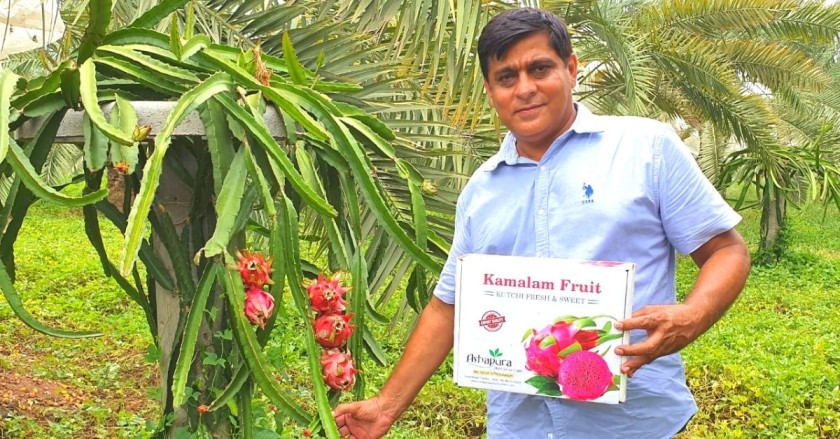
Haresh Thacker’s farm in Kutch blooms with fruit orchards of dragon fruit, mangoes, pomegranates and several hundred vegetables. The enterprising third-generation farmer sells his produce under the name Ashapura Agro Fruits.
Spending all his free time on the farm since he was 14, Haresh worked with a vision of building a farming empire in the dry, arid Gujarat region. Since he couldn’t change the climate, he found innovative ways to grow fruits and vegetables hitherto unheard of in the farms of Kutch.
Currently, he uses a Vietnam-based farming technique to grow dragon fruit and a high-density fruit tree planting method to grow mangoes, which usually need up to 100 litres of water per day. He chose the dragon fruit as it requires less water and can thrive in arid areas, besides being a low-calorie fruit. Through relentless experimentation, he now grows the dragon fruits in 50 acres.
Harsh also grows off-season strawberries and broccoli using the fan and pad technology to control the climate. He also uses an automated drip irrigation system and practises organic farming.
3. Preserving agricultural heritage
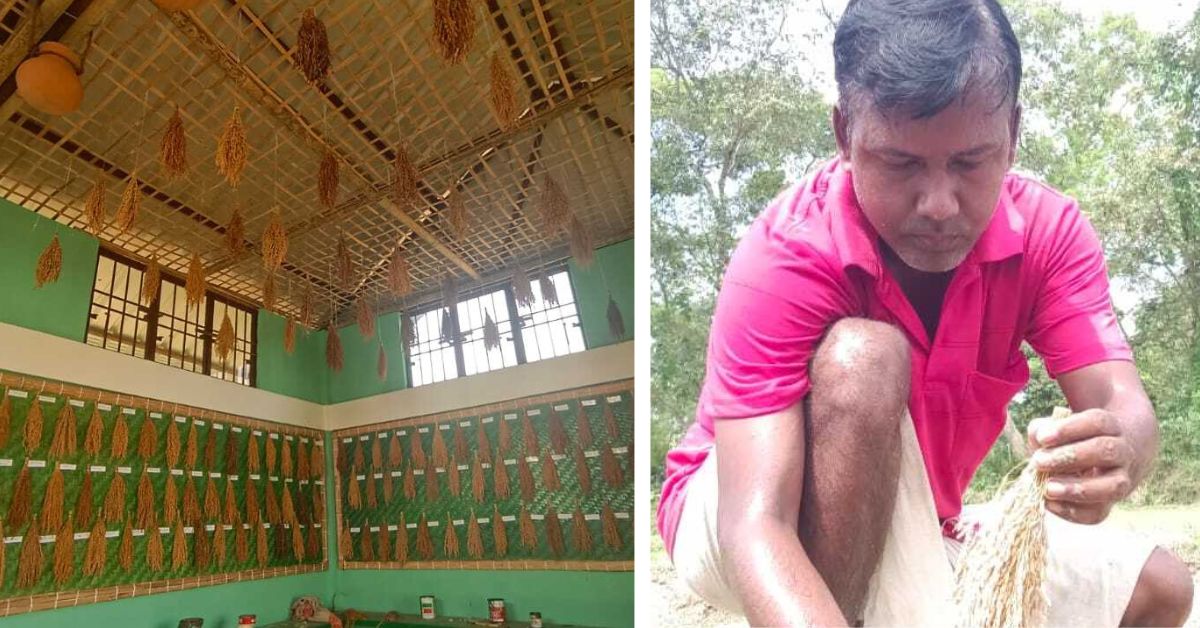
Mahan Chandra Borah, a rice farmer, wanted to educate people, especially the younger generation, about India’s rich diversity in rice and other crops. Shocked by the extinction of many indigenous varieties, he started ‘Annapurna Rice Library’ to protect the vanishing legacy of his forefathers.
When he started farming, he researched and grew different indigenous varieties of rice in his field in Assam’s Jorhat. Since he couldn’t do a PhD, due to financial constraints, he spent all his time researching and looking for papers on seed saving and rice varieties going extinct.
First, he set up a rice farming library at home, before setting up Annapurna, which has over 500 types of seeds preserved and grown organically. Farmers can visit the library and take any seeds they want. He runs it all on his own funds and conducts awareness classes in schools.
If you found his work interesting, Mahan is currently seeking funds and volunteers for his library. You can reach him at 91270 69446.
4. Sustainable post-harvest preservation
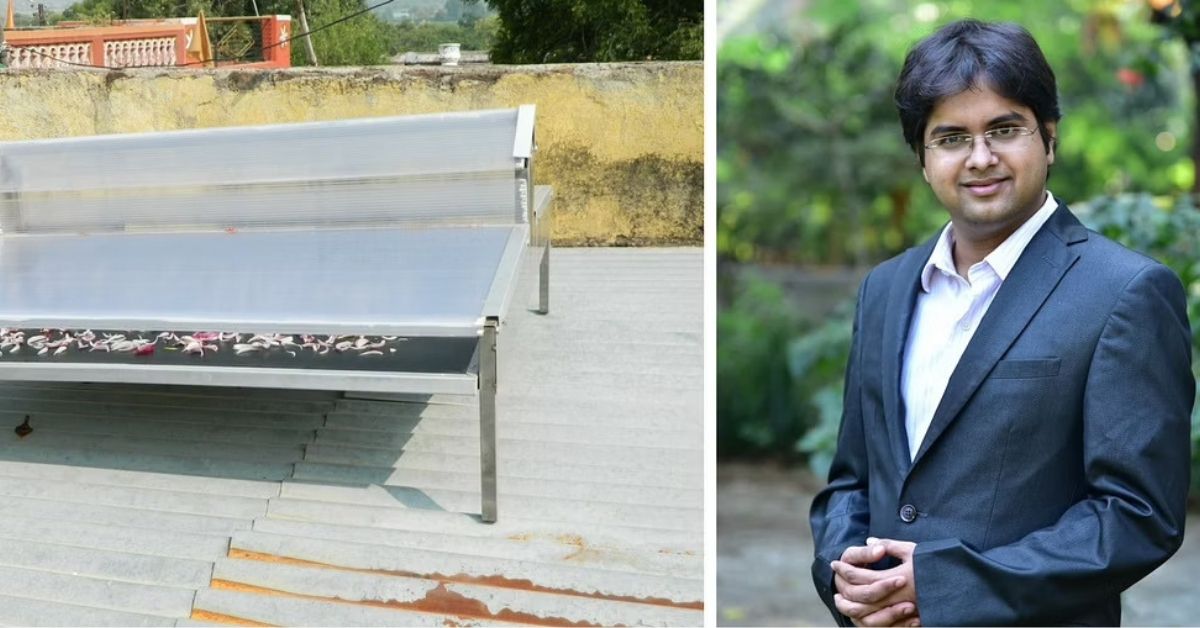
Vaibhav Tidke, a farmer’s son was moved by the post-harvest loss of fruits and vegetables, which he says is close to 60 million tonnes.
The engineer developed a solar dryer using a patented food drying technology to extend the shelf life of produce without adding chemicals and preservatives. Not only for fruits and vegetables, this dryer can also be used for meats, seafood and spices, and has been installed in more than 1,200 places in India.
The solar dryer consumes less energy than regular dryers and refrigeration devices, and keeps carbon footprint to a minimum. He sells this product along with others through his venture, Science4Society (S4S) Technologies.
5. Shelf life enhancement
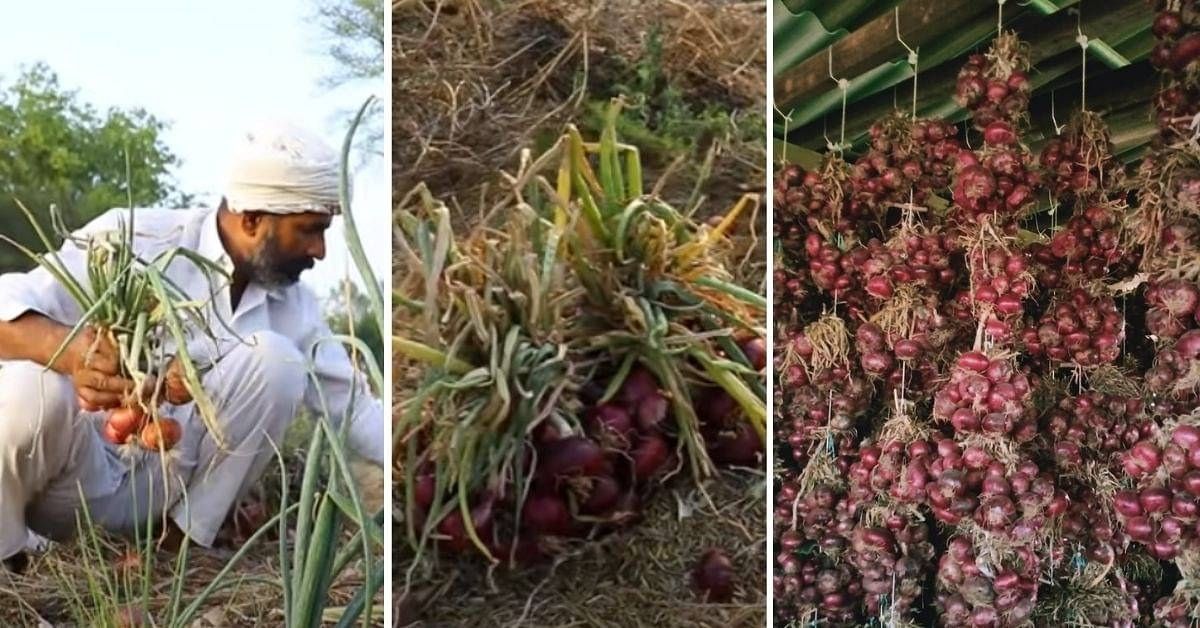
Haryana-based Sumer Singh started farming in 1999, using chemical fertilisers. When his family’s and land’s health deteriorated, he made the switch to organic farming, almost eight years ago.
Now, he not only grows vegetables, pulses, chickpeas and millets on his 14-acre farm but also motivates other farmers to do the same.
Singh started working on increasing the shelf life of his produce through innovative methods. For instance, he uses stubble for mulching on the land where he grows onions, which keeps the soil moist for longer, harvesting 80 quintals of onion from one acre.
He hangs the onions in bundles like one hangs bananas instead of storing them in stacks, which restricts spoilage. This also keeps them safe for three to four months. Similar innovations are followed for each crop to increase their shelf-life naturally.
6. Biofertiliser for enhanced yield
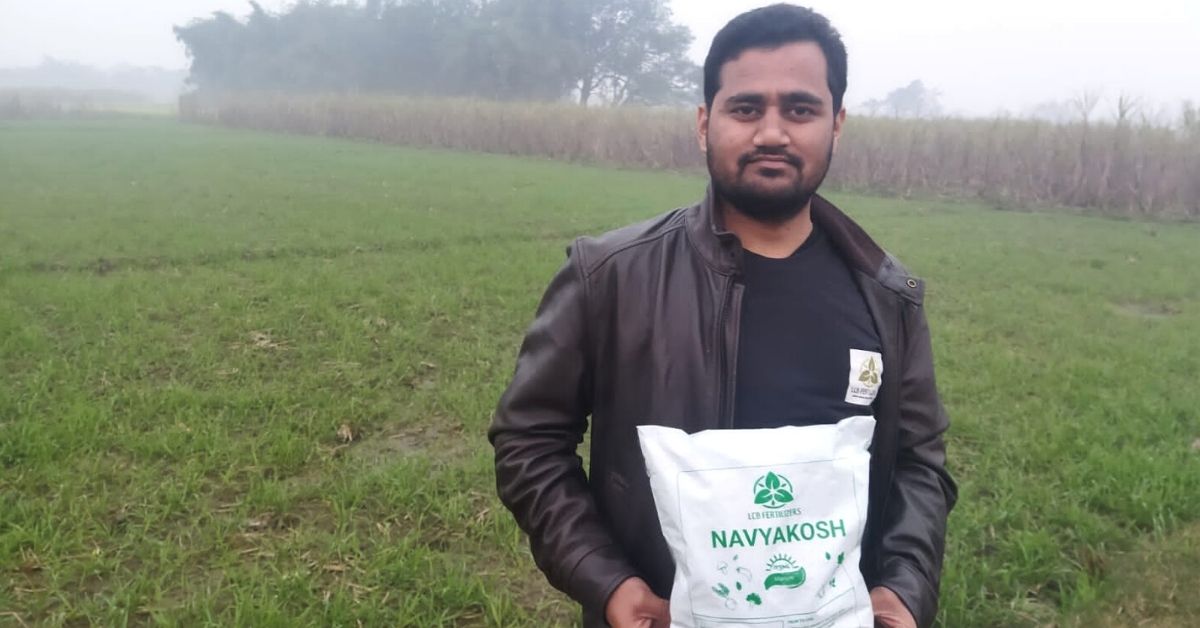
Akshay Shrivastav saw his father, a farmer in Kushinagar, Uttar Pradesh, face a lot of issues, including poor yield and bad soil quality, due to excessive use of chemical fertilisers.
He took up chemical engineering to find a solution to improve agricultural yield. The 24-year-old then created a biofertiliser that, according to him, can help increase agricultural productivity by 35 percent, helping over 3,000 farmers across India.
The biofertiliser has 60 types of microbes which can enhance nutrients in the soil. He also developed a granule that increases crop yield and reduces irrigation needs by more than 30 percent.
He started selling this biofertiliser under the brand name ‘Navyakosh’ through his startup ‘LCB Fertilisers’ in March 2021.
7. Innovation in irrigation
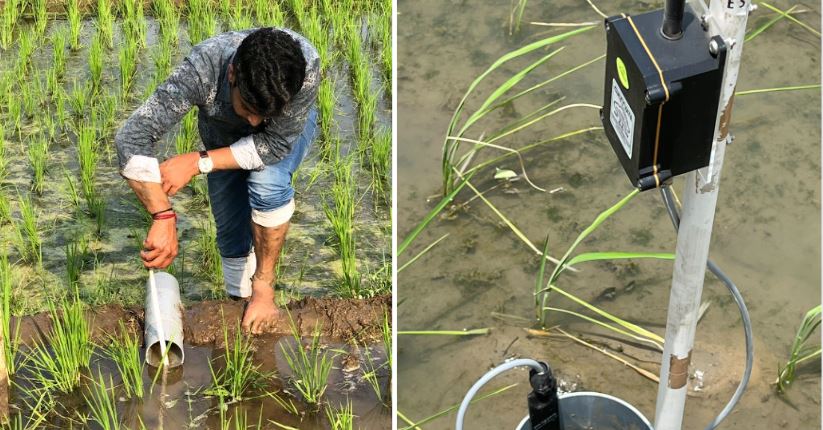
Due to a lack of proper irrigation techniques, farmers waste gallons of water in paddy fields. Malesh T from Mandya, Karnataka, watched his grandfather and other farmers use more water than required, leading to flooded farms and fungal diseases.
To help such farmers measure the water requirement of crops sitting at home, he launched an agri-tech platform ‘CultYvate’. The technology helps them understand when to provide irrigation so the crop is not submerged in water all the time.
He says that he is cutting down 40 percent of water use in farms through his platform and increasing their yield. “Our technology helps farmers analyse the dynamic climatic conditions and plan their farm cultivation,” says Malesh. If you found our stories insightful, informative, or even just enjoyable, we invite you to consider making a voluntary payment to support the work we do at The Better India. Your contribution helps us continue producing quality content that educates, inspires, and drives positive change. Choose one of the payment options below for your contribution- By paying for the stories you value, you directly contribute to sustaining our efforts focused on making a difference in the world. Together, let’s ensure that impactful stories continue to be told and shared, enriching lives and communities alike. Thank you for your support. Here are some frequently asked questions you might find helpful to know why you are contributing?

Edited by Pranita Bhat
This story made me
-
97
-
121
-
89
-
167




